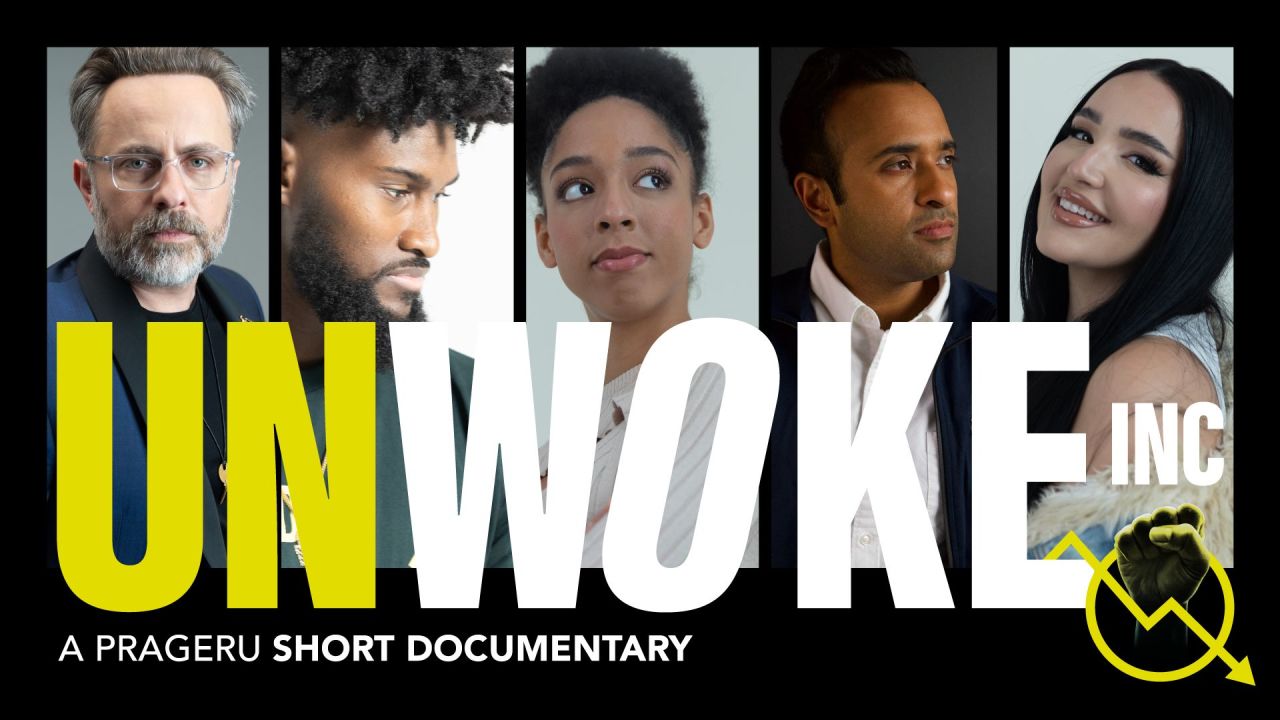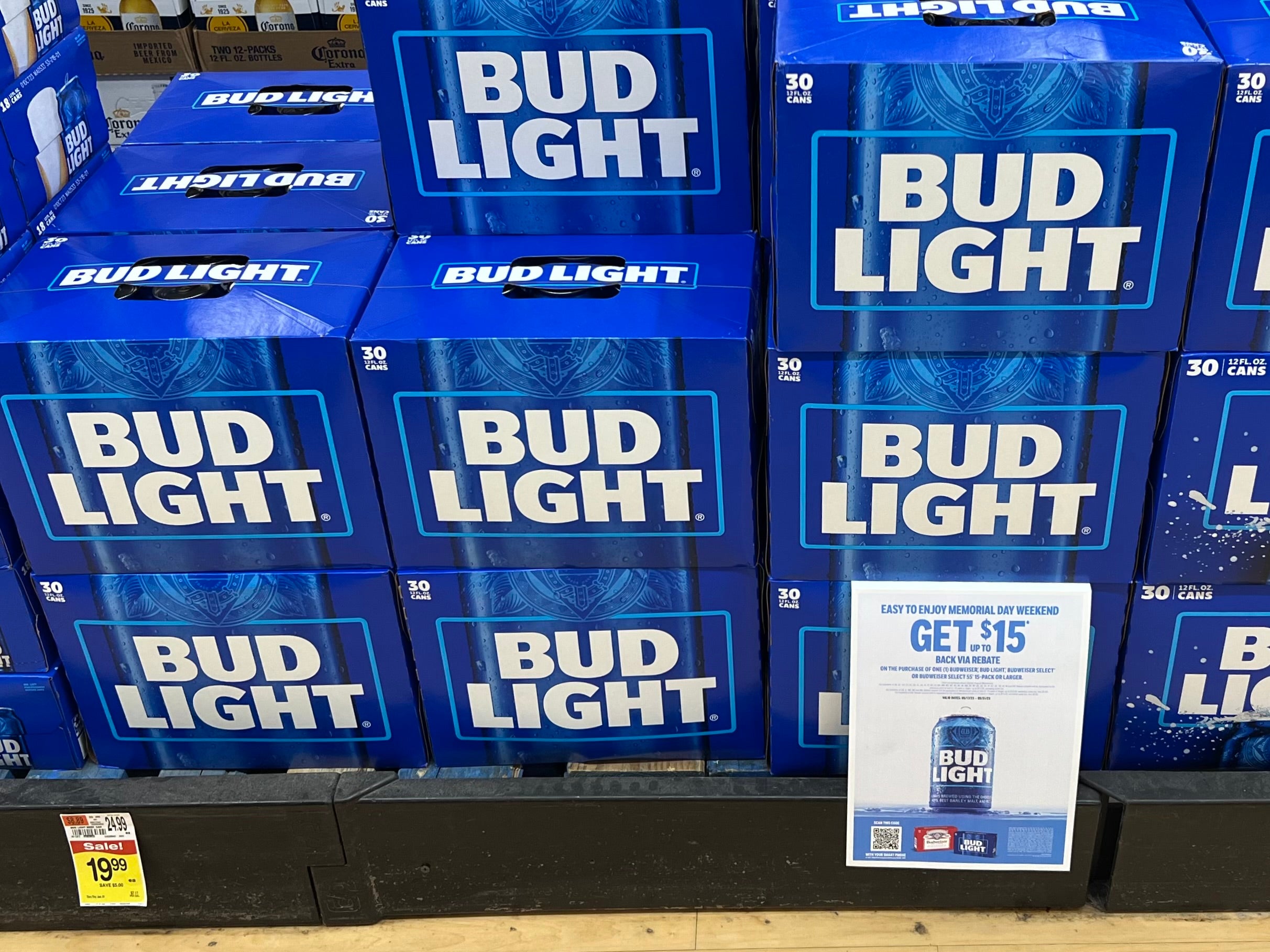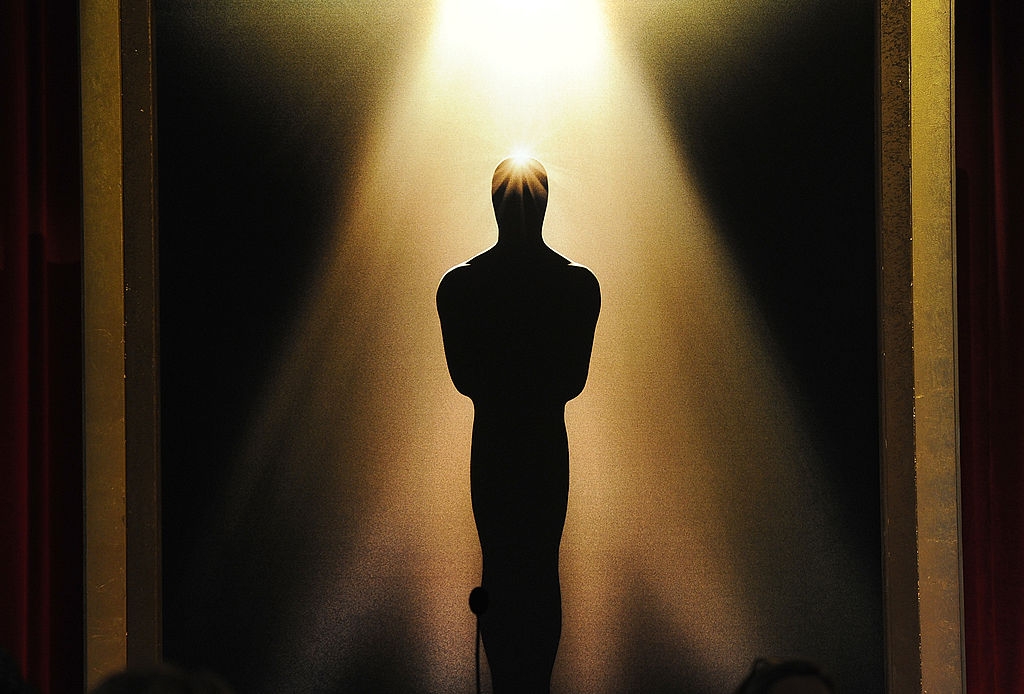I think this angle to Bud Lite and Target should be highlighted. The fact that they have, in a sense, had a gun to their heads, and were pretty much being bullied into these disastrous campaigns.

 fee.org
fee.org

Image Credit: iStock

The Wall Street Journal ran a deep dive article last week exploring “how Bud Light blew it,” but it somehow missed the most important part of the story.
As most people already know, the world’s most popular light lager has seen a collapse in sales following a boycott prompted by a March Madness ad campaign featuring transgender influencer Dylan Mulvaney. The Journal’s chart depicting the fall in Bud Light sales speaks for itself, and the company’s delayed and tepid response to the uproar only seemed to make matters worse.
This isn’t Anheuser-Busch’s first foray into controversial social issues.
The Journal’s Jennifer Maloney points out that the company has been engaging in social equity-themed advertising for years, including a 2021 Michelob Ultra ad featuring transgender track star Cecé Telfer and a 2022 Bud Light Canada campaign for Pride Month displaying various pronouns .
What Maloney fails to mention in her article is why beer companies — not just Bud Light — are suddenly courting controversial social issues such as nonbinary gender, transgenderism, and third-wave feminism.
The answer is simple: The rise of environmental, social, and corporate governance as the dominant strain of “stakeholder capitalism” has incentivized corporations to curry favor with ESG rating firms , even if it means alienating their consumers.
Unlike traditional capitalism, which seeks to maximize profits by serving consumers, the ESG model seeks to “improve” capitalism by considering other stakeholders besides investors and consumers. Publicly traded corporations are graded on how well they achieve socially desirable metrics, such as combating climate change, advancing diversity and inclusion, and creating a more “equitable” society.
What was intended to be a kinder, gentler form of capitalism has morphed into a kind of economic fascism that places the arbitrary interests of a small cabal of people — asset managers, bureaucrats, global financiers — ahead of consumers.
As the Austrian economist Ludwig von Mises pointed out , consumers are the true bosses in a capitalist system. They ultimately decide what products are created and purchased, who becomes wealthy, and who becomes poor.
As the Bud Light fiasco shows, ESG places consumers in the back seat. The social equity campaigns are not designed to appeal to Bud Light consumers, but to the ESG rating agencies, which have the power to downgrade companies that fail to dance to their tune.
This is a great deal for the ESG puppeteers. They can make multi-billion corporations move by the mere threat of a bad score, which gives them immense economic and political power.
Elon Musk found this out when Tesla was kicked off the S&P 500 ESG Index in May 2022, even though Tesla is an icon of sustainability. By January, Tesla’s stock, which had been trading at $248 a share, had fallen by roughly 55%.
To what extent Tesla’s collapse in share price stemmed from the company getting booted from the index is unclear, but the point is mostly moot. What matters is the threat of being singled out for an ESG transgression.
What few people seem to realize is that Bud Light’s collapse in sales is not just a threat to Anheuser-Busch. It’s a threat to the entire ESG model.
Up until this point, ESG has thrived because the perceived costs of not participating outweighed the costs of participating. Bud Light’s implosion stands to change that perception, which is precisely why the ESG overlords are striking back.
On Friday, USA Today published a leaked letter showing the Human Rights Campaign had informed Anheuser-Busch “that it has suspended its Corporate Equality Index score — a tool that scores companies on their policies for lesbian, gay, bisexual, transgender, and queer employees.”
“Anheuser-Busch had a key moment to really stand up and demonstrate the importance of their values of diversity, equity, and inclusion and their response really fell short,” said Eric Bloem, HRC’s senior director.
One can almost feel bad for Bud Light. The brand is caught in the middle of a larger war being fought by global anti-capitalists and the bosses of capitalism: consumers. Publicly traded companies should be allowed to go back to serving their real bosses — consumers — which is why the rotten ESG model should be dismantled.
This article originally appeared on The Washington Examiner.

The ESG Empire Strikes Back Following Bud Light Boycott
Up until this point, ESG has thrived because the perceived costs of not participating outweighed the costs of participating. Bud Light’s implosion stands to change that perception, which is precisely why the ESG overlords are striking back.
 fee.org
fee.org
The ESG Empire Strikes Back Following Bud Light Boycott
One can almost feel bad for Bud Light. The brand is caught in the middle of a larger war being fought by global anti-capitalists and the bosses of capitalism: consumers.Wednesday, May 31, 2023

Image Credit: iStock

Jon Miltimore
EconomicsWokeBud LightESGStakeholder CapitalismLudwig von MisesThe Wall Street Journal ran a deep dive article last week exploring “how Bud Light blew it,” but it somehow missed the most important part of the story.
As most people already know, the world’s most popular light lager has seen a collapse in sales following a boycott prompted by a March Madness ad campaign featuring transgender influencer Dylan Mulvaney. The Journal’s chart depicting the fall in Bud Light sales speaks for itself, and the company’s delayed and tepid response to the uproar only seemed to make matters worse.
This isn’t Anheuser-Busch’s first foray into controversial social issues.
The Journal’s Jennifer Maloney points out that the company has been engaging in social equity-themed advertising for years, including a 2021 Michelob Ultra ad featuring transgender track star Cecé Telfer and a 2022 Bud Light Canada campaign for Pride Month displaying various pronouns .
What Maloney fails to mention in her article is why beer companies — not just Bud Light — are suddenly courting controversial social issues such as nonbinary gender, transgenderism, and third-wave feminism.
The answer is simple: The rise of environmental, social, and corporate governance as the dominant strain of “stakeholder capitalism” has incentivized corporations to curry favor with ESG rating firms , even if it means alienating their consumers.
Unlike traditional capitalism, which seeks to maximize profits by serving consumers, the ESG model seeks to “improve” capitalism by considering other stakeholders besides investors and consumers. Publicly traded corporations are graded on how well they achieve socially desirable metrics, such as combating climate change, advancing diversity and inclusion, and creating a more “equitable” society.
What was intended to be a kinder, gentler form of capitalism has morphed into a kind of economic fascism that places the arbitrary interests of a small cabal of people — asset managers, bureaucrats, global financiers — ahead of consumers.
As the Austrian economist Ludwig von Mises pointed out , consumers are the true bosses in a capitalist system. They ultimately decide what products are created and purchased, who becomes wealthy, and who becomes poor.
As the Bud Light fiasco shows, ESG places consumers in the back seat. The social equity campaigns are not designed to appeal to Bud Light consumers, but to the ESG rating agencies, which have the power to downgrade companies that fail to dance to their tune.
This is a great deal for the ESG puppeteers. They can make multi-billion corporations move by the mere threat of a bad score, which gives them immense economic and political power.
Elon Musk found this out when Tesla was kicked off the S&P 500 ESG Index in May 2022, even though Tesla is an icon of sustainability. By January, Tesla’s stock, which had been trading at $248 a share, had fallen by roughly 55%.
To what extent Tesla’s collapse in share price stemmed from the company getting booted from the index is unclear, but the point is mostly moot. What matters is the threat of being singled out for an ESG transgression.
What few people seem to realize is that Bud Light’s collapse in sales is not just a threat to Anheuser-Busch. It’s a threat to the entire ESG model.
Up until this point, ESG has thrived because the perceived costs of not participating outweighed the costs of participating. Bud Light’s implosion stands to change that perception, which is precisely why the ESG overlords are striking back.
On Friday, USA Today published a leaked letter showing the Human Rights Campaign had informed Anheuser-Busch “that it has suspended its Corporate Equality Index score — a tool that scores companies on their policies for lesbian, gay, bisexual, transgender, and queer employees.”
“Anheuser-Busch had a key moment to really stand up and demonstrate the importance of their values of diversity, equity, and inclusion and their response really fell short,” said Eric Bloem, HRC’s senior director.
One can almost feel bad for Bud Light. The brand is caught in the middle of a larger war being fought by global anti-capitalists and the bosses of capitalism: consumers. Publicly traded companies should be allowed to go back to serving their real bosses — consumers — which is why the rotten ESG model should be dismantled.
This article originally appeared on The Washington Examiner.





